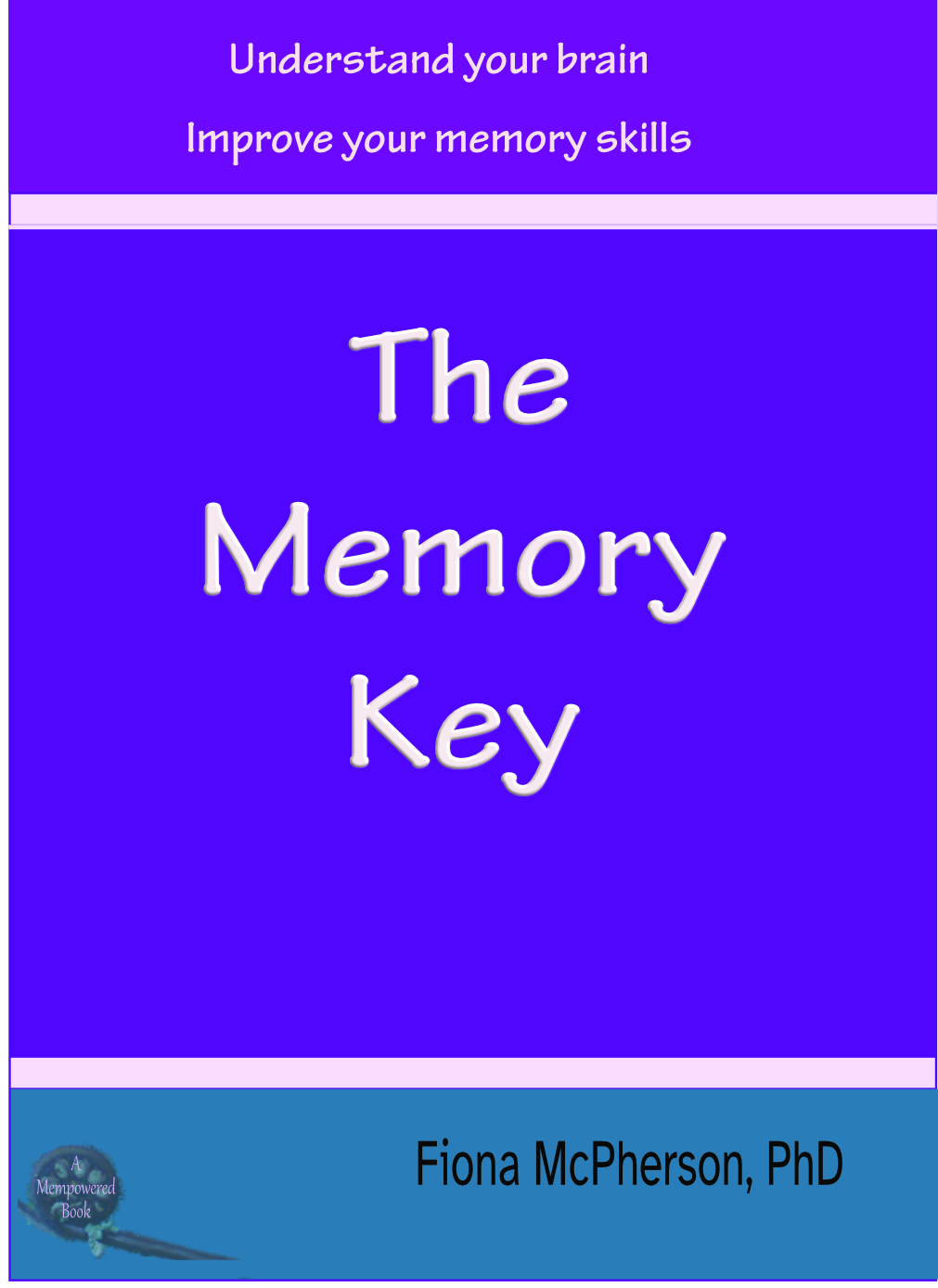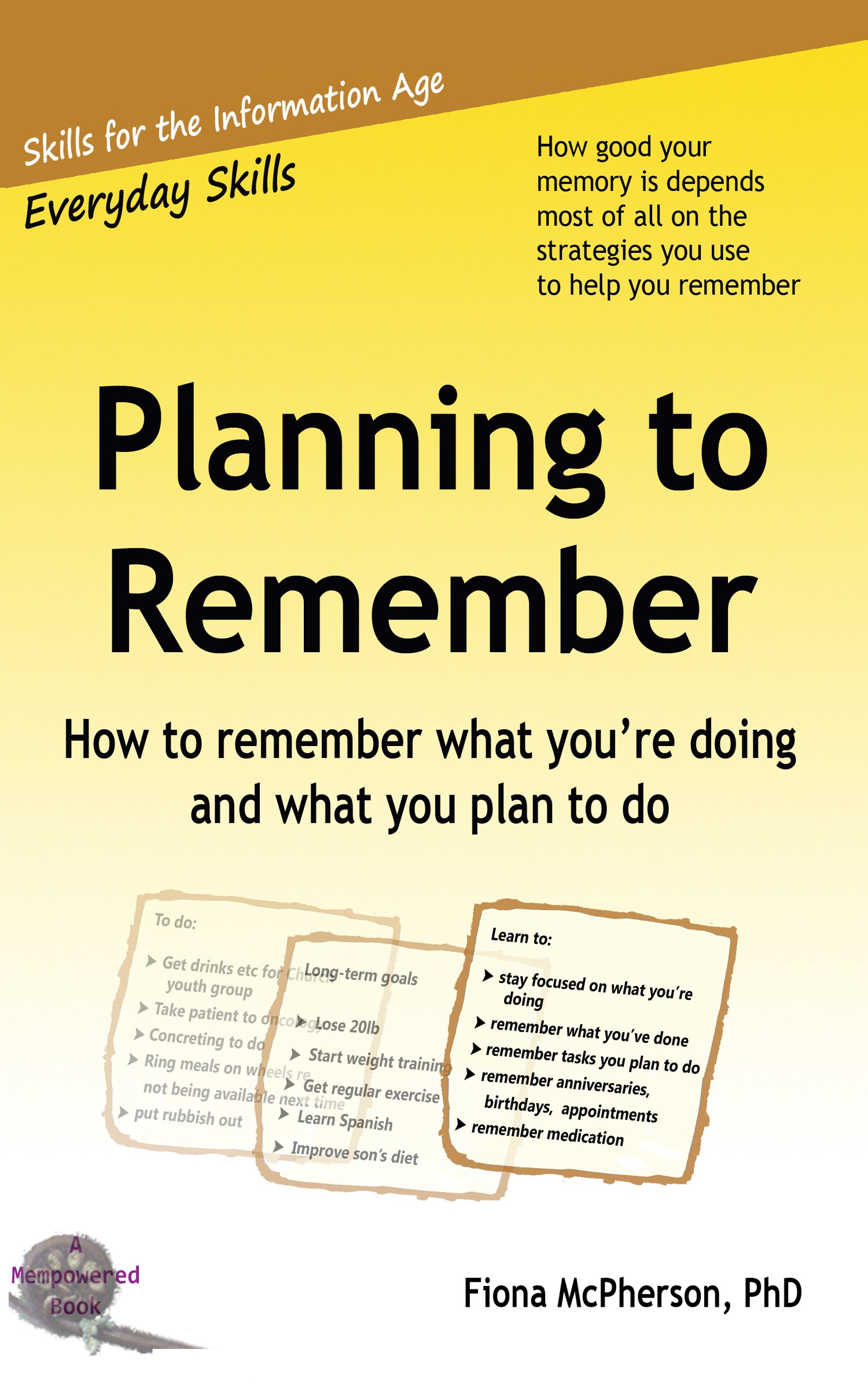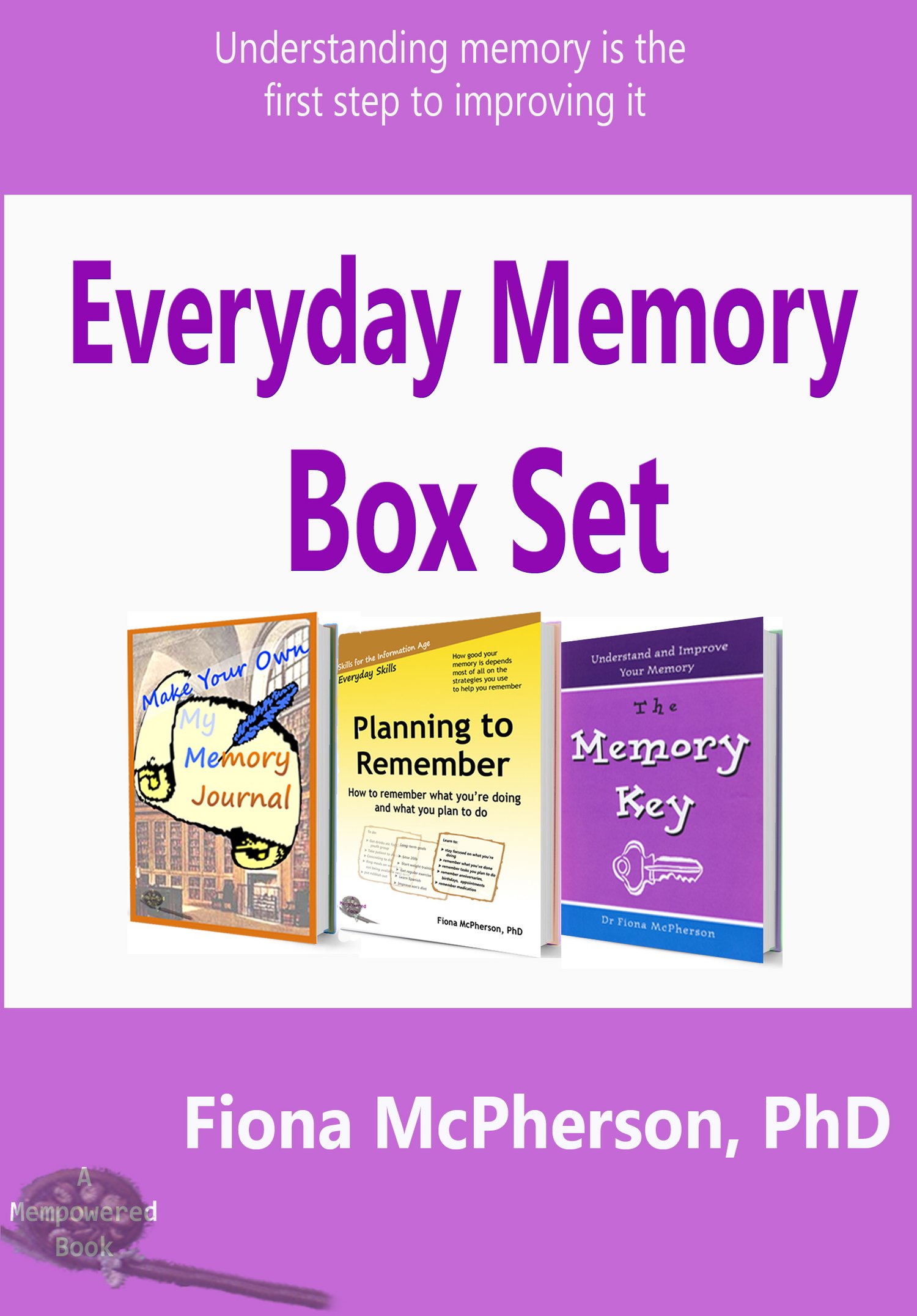
The Memory Key
On Sale
$5.99
$5.99
Dr McPherson's original memory book is out of print but is still available as a downloadable e-book, in PDF format. Note that an updated edition of The Memory Key, published by Random House UK as Perfect Memory Training, is available in both digital and print form from booksellers.
Most memory improvement courses do not result in long-lasting change. A major reason for this is that, although the courses usually teach effective strategies, they fail to adequately instruct the participants when and when not to use them. The memory situations that you experience in your daily life cannot be precisely defined. You cannot make a list of the situations in which a particular strategy is effective. The effectiveness of a memory strategy depends on a number of different factors — not simply the task itself, but also many factors relating to the context of the task, and your own individual circumstances (personality, mood, physical state, etc.). To know when and when not to apply a particular strategy, you need to understand why and how it works. You cannot do this without having a basic understanding of how memory works.
An effective rememberer
An important part of improving your memory involves understanding that there are different memory domains — different “memories”, if you like, that are concerned with different types of information. Thus there is a memory domain that deals with remembering people’s faces, and one that remembers how to drive a car, and one that remembers that you need to stop at the shop on the way home. To appropriately apply memory strategies, you need to know which memory domain is involved and understand the differences between these different domains. A chapter is devoted to discussing the different memory domains.
In the last section of the book I look at various effective memory strategies and explain how they work in terms of the basic principles. After reading this, the reader should not only understand when particular strategies are appropriate, but should also be in a much better position to judge the value of the various bits of advice given on how to improve your memory.
As always with the Mempowered books, this fully referenced book is based on the work of cognitive researchers.
This book is available in pdf format only, and only from the author's store.
Most memory improvement courses do not result in long-lasting change. A major reason for this is that, although the courses usually teach effective strategies, they fail to adequately instruct the participants when and when not to use them. The memory situations that you experience in your daily life cannot be precisely defined. You cannot make a list of the situations in which a particular strategy is effective. The effectiveness of a memory strategy depends on a number of different factors — not simply the task itself, but also many factors relating to the context of the task, and your own individual circumstances (personality, mood, physical state, etc.). To know when and when not to apply a particular strategy, you need to understand why and how it works. You cannot do this without having a basic understanding of how memory works.
An effective rememberer
- knows how memory works
- has many memory skills and can apply them appropriately
- accurately judges how well they have learned, and how likely they are to remember easily and accurately
An important part of improving your memory involves understanding that there are different memory domains — different “memories”, if you like, that are concerned with different types of information. Thus there is a memory domain that deals with remembering people’s faces, and one that remembers how to drive a car, and one that remembers that you need to stop at the shop on the way home. To appropriately apply memory strategies, you need to know which memory domain is involved and understand the differences between these different domains. A chapter is devoted to discussing the different memory domains.
In the last section of the book I look at various effective memory strategies and explain how they work in terms of the basic principles. After reading this, the reader should not only understand when particular strategies are appropriate, but should also be in a much better position to judge the value of the various bits of advice given on how to improve your memory.
As always with the Mempowered books, this fully referenced book is based on the work of cognitive researchers.
This book is available in pdf format only, and only from the author's store.




